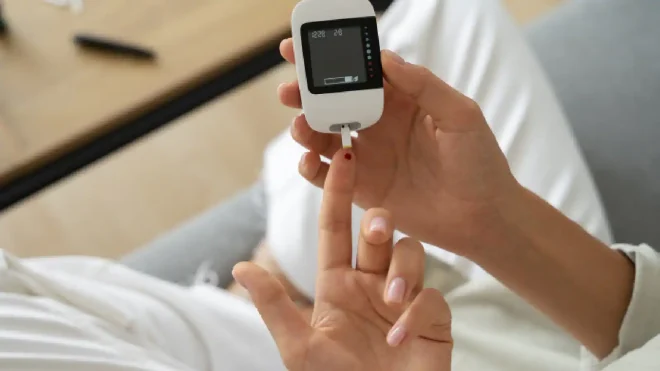
Uncontrolled Diabetes: 8 Warning Signs Your Blood Sugar May Be Out of Control
Many things can cause uncontrolled blood sugar levels, leading to health problems. Frequent urination and fatigue are some of the symptoms of uncontrolled diabetes.
Diabetes Mellitus is a chronic condition associated with high levels of sugar (glucose) in the blood. This is because the body does not produce enough insulin, a drug that controls blood sugar, or does not properly use the insulin it produces. Type 1 diabetes is when the body’s immune system attacks insulin. Type 2 diabetes is another type of diabetes in which the body either produces insulin or stops producing enough insulin. Timely drug treatment is necessary to control diabetes. If you have type 2 diabetes, you need to pay close attention to your diet to control your blood sugar. Be careful about the symptoms of uncontrolled diabetes to prevent problems such as heart disease, eye and kidney problems.
What causes uncontrolled diabetes?
Uncontrolled Diabetes means your blood sugar is too high. There are many things that can cause diabetes;
- Noncompliance with medication or insulin regimen.
- Eating foods high in sugar and fat can cause high blood sugar levels.
- No physical exercise.
- Stress and pain can affect blood sugar and insulin action.
- Failure to monitor blood sugar regularly can lead to misinterpretation of blood sugar levels.
What are the symptoms of uncontrolled diabetes?
Here are some symptoms of high or low blood sugar:
1. Increased thirst
According to the Centers for Disease Control and Prevention, healthy blood sugar levels should be between 80 and 130 milligrams per deciliter (mg/dL) before meals and below 180 mg/dL two hours before meals. When blood sugar is high, too much sugar is released into the urine. Glucose in the urine absorbs water from the blood through osmosis, causing dehydration. Dr. Srivastava explains that this triggers the brain’s thirst mechanism.
2. Frequent urination
Glucose appears in the urine when blood sugar is above 180 mg/dL. To get rid of excess sugar, the kidneys filter it from the blood and release it in the urine. This process requires a lot of water, which results in more urine.
3. Excessive hunger
Even if blood sugar is high, cells can starve to death due to lack of insulin or insulin resistance. When this happens, a signal is sent to the brain that the body needs more food, which increases hunger.
4. Unexpected weight loss
When cells can’t access glucose for energy, the body starts breaking down fat and lean tissue for energy, which causes weight loss. Experts say this can happen even when calorie intake is the same or increases.
5. Fatigue
Without enough insulin, sugar stays in the blood instead of entering cells to be used as energy. This can lead to low energy and persistent fatigue. Fatigue can occur with high blood sugar levels (above 140 mg/dL) and may worsen as blood sugar levels rise.
6. Blurred vision
High blood sugar draws fluid into the eyeball, causing it to change shape and vision. It can also damage the blood vessels in the retina, causing vision problems.
7. Wounds heal slowly
High blood sugar can cause blood loss, which can delay treatment. Experts say that high blood sugar can affect the body’s immune system. In fact, high blood sugar can create a good environment for bacteria and fungi to grow, which can lead to infections, especially in the skin, gums, urinary tract and genitals.
8. Tingling or numbness in hands and feet
Long-term diabetes can damage blood vessels, especially in the legs. This can cause tingling, numbness, and pain in the hands and feet, a condition known as diabetic neuropathy.

What are some ways to control diabetes?
Uncontrolled diabetes can lead to many health problems, including increased risk of heart disease, stroke, high blood pressure, and even death. According to the World Health Organization, high blood sugar causes about 20% of cardiovascular deaths. Experts say it can cause kidney failure and eye damage.
Follow these tips for managing diabetes:
- Follow a healthy diet – This means eating plenty of vegetables, fruits, whole grains and lean protein. Eat less foods containing sugar and refined carbohydrates.
- Get at least 150 minutes of aerobic exercise per week, as exercise helps lower blood sugar and improve insulin levels.
- Check body weight to control blood sugar.
- Take medications for type 2 diabetes, including insulin and oral hypoglycemic agents.
- Check your blood sugar regularly to track your progress and adjust your diabetes treatment as needed.

By understanding and managing the symptoms of uncontrolled diabetes, you can reduce your risk of complications from this disease.

